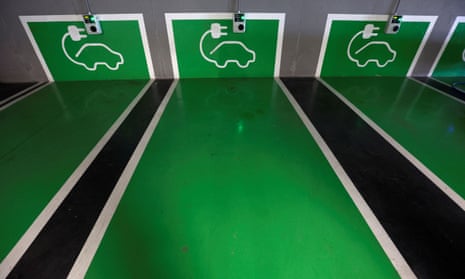The European Commission is likely to propose a three-year delay on post-Brexit tariffs on electric cars, after months of lobbying by industry and the UK government.
Carmakers were fearful that exports between the UK and EU – in both directions – would be hit by 10% tariffs in the new year because of “rules of origin” aiming to reduce China’s dominance of the global battery industry.
A delay to the tariffs, if confirmed, would remove one dark cloud hanging over European carmakers. An official announcement is possible as soon Wednesday, pending approval by the European Commission’s cabinet.
The tariffs were planned as early as 2020. So why are they still an issue three years later?
Why are tariffs an issue?
It stems from Brexit. The UK and the EU agreed the Trade and Cooperation Agreement on Christmas Eve in 2020, setting out the post-Brexit trading relationship. Both sides used the deal to try to spur the creation of a European electric car battery industry.
The deal gave carmakers until 1 January 2024 to source batteries from within the UK or EU, or else face 10% tariffs on exports of electric cars either way across the Channel.
Batteries are the most expensive component of electric cars, and battery manufacturing is dominated by South Korea, Japan and – most of all – China. The deadline was meant to push carmakers into building batteries in the UK or Europe. Yet approaching the January deadline, carmakers are still dependent on Asian batteries and materials, meaning most UK-EU car exports would become more expensive. Perversely, petrol and diesel cars would be unaffected.
What went wrong?
The coronavirus pandemic and rising interest rates have got in the way. A huge wave of battery factories in Europe, including two in the UK, is on its way, but will not be ready in time.
The carmakers have been arguing in public that they have no way of meeting the deadline.
What is at stake if the deadline is not delayed?
Tariffs would be unavoidable if the deadline is not extended. Two-thirds of the UK car industry’s output goes to the EU, while the UK has long been one of the most lucrative markets for Germany’s premium carmakers, in particular.
after newsletter promotion
A chorus of carmakers from the UK and EU has said the deadline must be delayed, arguing it would slow the uptake of electric cars by making them more expensive. They include Toyota, Ford and Jaguar Land Rover, all of which have factories in Britain, plus BMW and Volkswagen, which own Rolls-Royce and Bentley in the UK.
Manufacturer Stellantis, which employs more than 5,000 people in the UK, including 1,000 at its Vauxhall electric van factory in Ellesmere Port, Cheshire, and 1,200 at its Luton plant, has said the tariffs would make production in the UK not viable.
Why has an extension taken so long?
It is not only the carmakers with UK factories who are worried. Europe’s powerful lobby group, the European Automobile Manufacturers’ Association, is firmly in favour of extension, as is the UK government.
Yet the EU has been wary of anything that could be seen as reopening the Brexit deal, particularly if it would benefit the UK. Thierry Breton, an influential European commissioner, said in September he did not want to reopen the trade deal just to help the car industry.
Germany and other countries with a significant car manufacturing base pushed for a suspension, but France argued this would involve reopening the Brexit agreement and require support from 27 member states. It seems the French may have relented.
A delay to the tariffs would represent a belated turnaround from the EU – but it will be warmly welcomed by the car industry on both sides of the Channel.
